|
I teach high school English. My AP curriculum is focused on rhetoric--basically the art of argument. My regular English curriculum is focused on American literature and writing argumentatively in different modes of discourse. My Speech class curriculum includes debate as the primary focus for the second half of the semester. In short, I am teaching my students how to argue well all day long.
Here are the most important lessons: -Listen. With an open mind, with a kind spirit, with a willingness to understand and find flaws in your own understanding. With a heart to learn. With curiosity, with humility, with respect. With your mouth closed--without interrupting. -Share with a motivation of explanation rather than persuasion. Because democracy thrives when there is a free and fair exchange of ideas, share yours. When you do, with patience and competence, explain your reasons, supported with evidence and free from fallacies and meanness. Your audience might not agree with you, but they will have learned and grown because of you. -Be discerning. As you navigate the differing opinions in the world on challenging issues, be careful how you arrive at your own position. Be thoughtful and well-read. Seek unbiased sources as much as possible, and recognize the biases for what they are when they appear. Check everything, consider everything. Seek wise counsel and don’t rush to assumptions. Do not compromise your convictions to align yourself with a wrong idea. Do not be committed to faulty convictions. -Be compassionate. The most important lesson I teach. This should dictate all of our principles: the well-being of people. The best judgments and opinions come from places of understanding the other person, of empathy, of love. When we come into contact with people different from ourselves, we grow. When we choose to be compassionate, our capacity to hold right ideas increases. Our nation will be better served and far better off if we can raise a generation of people who understand that our worldview must be molded with other people in mind, simply because other people exist. And then, even when we disagree, at the very least we are all trying to get to the same place--what is best for everyone. Right now, my spirit is wounded, but I have reason to hope in our children. I see in my classroom so much compassion and kindness, so much acceptance and love, so much willingness to work together and move forward. I see in them ideals and principles that have for generations made this country so beautiful: ingenuity, creativity, determination, hard work, competitiveness. And also love, forgiveness, a sense of justice and mercy, genuine concern for other people. I think we adults could stand to learn a lot from our children.
0 Comments
The classroom looks different for all us. Some are still all virtual. Some are hybrid. For those in school, things still are not the quite the same. My desks are in rows. All facing the front of the class. Never in my career has my classroom looked like this. I’ve had desks in groups, desks on either side of the room creating a center aisle (this is a popular design), tables, I’ve had couches and bean bags and recliners. But never this. So the kids up front are close enough to see me sweating and the kids in the back are not sure what color my shirt is. Rightly so, we have been discouraged from walking amongst the children too much. I spend most of the time at the front of the room or at my new desk situation at the side of the room. I haven’t had a desk in my class for years. I keep all my personal things in a locker and all the things my students need in pink dresser. Now I use a bistro table and an ergonomically designed drafting chair as a desk area. I can see all the students perched from my chair. But I can’t hug them from here. When I teach and look out at my students, most of them are wearing their masks. Now instead of standards and agenda on the board (those can be found online, specifically on Google Classroom), I have their 10-minute color-coded break schedule listed. I am especially proud of this very teacher-y idea of mine. Of course, students can take a mask break whenever he/she needs one, but I love the fact that I color coded the desks and the break times. So, I see only their eyes. I can’t see them smile. I can’t see them scrunch their nose or twist their mouth or bite their lip—in frustration or confusion. I can’t read their faces like I used to. Do I need to repeat this, teach it differently? Does this child need something else, something beyond the lesson? I can’t see my students, not the way I am accustomed to seeing them. And it frustrates me. But this past week, in second period I noticed something. This class is quiet, which makes it even more difficult to see them. I was at the front of the room, teaching. Looking over the room, searching my students for answers and questions, I saw something amazing. Their eyes. Now, because of the masks, their eyes had become something more. I relied so much on their eyes to tell me so much. And now, I could see more than I could before. Of course, I have always seen my students’ eyes. Obviously. But now—how striking. How powerful. I had forgotten, or maybe had never realized, how much we can see in a person’s eyes. It also struck me how fortunate I was to see these students eye-to-eye at all. With the uncertainty this pandemic has created and with the losses I have had in my personal life, I treasure every day I get to spend in the classroom with my teenagers. I also appreciate their willingness to wear a mask to protect themselves, each other, and me—and make it possible to be together at all. As much as I possibly can, I will look for ways to see good in the hardships and tragedies of this pandemic. Seeing my students in a different way is wonderful, indeed. Delivered with so much love at their funeral on October 16, 2020
Mamaw wanted me to speak at her funeral. It was an unconventional request made several years ago. I never gave her an answer. But when I was a little girl and wanted ice cream because I was sick, she made a special trip to the store right then just so I could have a bowl of ice cream. And when Mamaw got us Care Bears when we were little, maybe for Christmas, I can’t remember, she got me Tender Heart Care Bear. She told me it was because my own heart was so tender. This gesture said to me that my sensitivity, my quickness to cry, my hyperactive empathy was not a weakness or flaw. I am grateful to her for that. So, of course I am speaking at her funeral. She was my grandmother. I loved her. Sometimes my husband calls me “Darlene” when I retell a story or make a hilarious joke that no one else finds funny. Or when I randomly break into song, inspired by what someone has said. Sometimes it’s a look on my face. But he knows how much I love my mom and that there is no better compliment he could give me. My daddy sometimes calls my mom “Thelma”. And they are so much alike. They share so much beauty, strength, and goodness. Mamaw made things. Like her daughter one day would, she sewed clothes for her children: matching outfits, a wedding dress for Aunt Cindy. Mamaw painted. I remember us grandkids gathered around her kitchen table while she worked on her paintings. And she made biscuits. But it wasn’t just the biscuits. Everything she made was delicious. In the same way, everything tastes better at Meme’s, my mom’s, house now, according to my son, Joe. Mamaw was beautiful. The younger pictures of Mamaw remind me of my mother and my niece, Charlie. I see them there in Mamaw’s clear eyes, her thin lips. It’s a clear beauty. By that I mean it captivates by its transparency and mystery. It is unadulterated, pure, and unpretentious. Mamaw was strong, maybe stubborn. My grandmother buried three children, lost three homes, and dealt with so many other heartbreaks. She raised a family and weathered life with resolve and fortitude. She sacrificed so much. Mamaw was loved by her children. With the heartaches that come with life, through all of the trials and pain, her children never stopped loving her. My childhood is filled with memories of Mamaw with her daughters. The Disney trip with all eight of us crammed into one hotel room. The World’s Fair. Countless trips to town. And so many days and evenings of being together at someone’s house. When my mom had a kidney infection after Rene was born, it was Mamaw she went to. When John decided to come into the world far too early, Mamaw was there. In the same way, my sisters and I love being with our mom, the same way Lauren loves being with her mom. Our moms learned that from their mother. They have passed that on to us. My mom is her mother’s daughter. She possesses all the qualities that made her daddy fall in love with her momma. She possesses all the qualities I loved about my grandmother. And there were so many. * When I was a little girl, I stood in front of Papaw who sat on the couch in his family room. We were eye to eye. “Okay, Little Debbie, I’m going to make this here quarter disappear,” he said. Then the quarter he had shown me was gone. “Where is it?” I squealed, delighted and in awe of my grandfather’s magical powers. “I made it disappear,” he said, laughing. “But where is it?” He turned me around. “Look up yonder at the ceiling. It’s up there, floating all around. You just can’t see it. Maybe if you squint real hard.” I did, but I saw no quarter. I did hear Papaw laughing behind me. When I turned back around, he had the quarter between his stubby fingers. “How did you do that, Papaw?” I was amazed. “Magic,” he said. I think Papaw is still up to his old magic tricks. Just like that quarter, he hasn’t gone anywhere. Not really. We just can’t see him. One of my earliest memories is in Mamaw and Papaw’s living room full of people and children and Buddy the Chihuahua. Mamaw sat beside Papaw while he strummed his guitar and sang. Around the room, everyone was singing and it went on and on. And it was happiness. This scene has stuck with me because it is when I started piecing together who was who and how they were connected to me and why they loved me. In other words, it is when my identity started, while Papaw sang to his grown children and their families. That sweetness imprinted on my soul. That love was powerful. When we were little, we spent a lot of time at Mamaw and Papaw’s house, John Wayne or Spaghetti Westerns on the TV in the background, bunches of cousins running around, and so much laughter. When we were very little, he bounced us on his knees and sang “Old Man Brown.” When we got in trouble and was fussed at by Mom or Aunt Cindy or Mamaw, Papaw would crook his finger and say, “Goody, goody, goody.” And smile. He told us stories of wompus cats and pole cats, of Santa Claus spitting in our eye. He sang songs with our names in it. And he had nicknames for us: Little Debbie, Blondie, Dump-dump. He wrestled and tickled and played and ran around when he was younger. Then when he was older, he still tried to do all of that. He played volleyball at family reunions with all the young people. He never stopped playing corn hole with his Body and anyone who was around. Until the very end, he never stopped playing. And he never stopped smiling. Papaw found joy in everything. He was a simple man who delighted in simplicity. Make no mistake—by simple I do not mean that Papaw was unintelligent. He saw the world differently than most are capable. He had no use for grudges or contention. He had no time for complaining or arguing. He truly loved like Christ - completely, unconditionally, with grace and joy. Because of that, he saw the world through the eyes of love. My Papaw, the Godly man that he was, is the greatest example of Christ-like love I have ever known. Sometimes it upset me, because it was so true and so fierce that it was unfair to him. Sometimes I wanted him to think of himself. Sometimes I wanted him to get angry. Sometimes I saw his gentle spirit and blindness to the faults of others as a character flaw. But I know better. It takes great strength to love another so completely, it takes great wisdom to see beyond earthly comforts, it takes great understanding of the Biblical truth of what love is in its purest form to live the life my grandfather lived. And because of that, he had a life of joy. Because of that, everyone in this room knows he was a good, genuine man who always meant well. My own faith in Christ ultimately began with my grandparents, and I am sure I am not the only one here who can say that. My earliest memory of church has Mamaw in it. Gina was asleep on the pew and I stood by Mamaw. And we sang together. I remember how she clapped her hands, closed her eyes, tilted her head back. At one point she cupped my face with one hand, pressed my head against her outer thigh while her other hand was raised in worship. I felt love. There was a time, later in his life, when Papaw attended church with me for several months. I had my own family then. What joy to hear my Papaw’s loud, rough, wonderful voice belting out hymns in my church, with me. But their faith was more than church attendance and following rules. Their faith was truly about a relationship with Christ and a community of other believers. My grandparents were flawed people, just like we all are, but they were forgiven people. Faith is not about living a perfect life. Faith is about love. Theirs is truly a love story. Theirs is a love story that is about devotion and forgiveness. It’s a love that sees beauty hidden beneath wrinkles and pain and grief, a love that forgives completely and finds joy in serving, purpose in giving, delight in humility. It is a love that sacrifices, provides, completes. It is a love so strong that it follows through death into eternity where it will last through the ages in the heavens and through the generations of their children and their children and their children and so on. Near the end of their love story, as the dementia took over, Mamaw was often in a hurry to leave when they were over visiting at Mom’s. Most visits during the last several years ended with “Come on, John,” or “Time to go, John,” or “John, I’m ready.” And Papaw would jump up, “The wife is ready. I gotta go.” And we would all plead with them to stay, just a little longer. And so, with Mamaw hurting, it was time for her to leave this earth. It’s as if her spirit said to her husband one last time, “Let’s go, John. It’s time to go.” And he followed her. His heart would not work without her with him anyhow. * There is so much sadness and uncertainty around death, even for those with the strongest and surest of faiths. But I am certain of this—my Papaw would not want us to weep for him. My Papaw died doing exactly what he delighted in doing-loving and caring for his wife. I’ve heard his voice in the quiet moments over the last week, saying things like, “Sister and Poohdle-loo, thank you for letting me take care of your mama the way I wanted to. You both did great.” I hear him saying things like, “Mule, I’m always proud of you. Keep an eye on my girls.” I also hear him say, to the rest of us, “I swuneey, there’s a lot of y’all here. But I sure wish y’all wouldn’t be hurting so much on a count of me and Thelma. We’re okay. I love all y’all. I sure do.” Mostly over the past several days, I have heard him chuckling and laughing as I’ve thought back on memories of him and Mamaw. That is the music I will keep with me most, my Papaw’s laughter. And I will wait for the end of the magic trick, when all secrets will be revealed to us. Like it says in First Corinthians, “For now I know in part; then I shall know fully, even as I am fully known.” I will wait for the time when we will see our Savior and our loved ones. Oh, what a good laugh we will have then. I can’t find her. I’ve searched and searched. I’ve looked her up on Facebook and Instagram and Google. Maybe I have the wrong name.
And I feel her slipping from my memory, like everything does as the days go on. Not really slipping. Nothing slips, it just gets pushed back further, more inaccessible, harder to get to, darker and more indecipherable, fuzzier. Our memory is never completely reliable, and the fuzzier it gets, the older, the more we embellish or interpret. But it is our own. It is truth. It is ours. I can’t find Miss Keeling in the world. I don’t know her first name, but I think maybe it was Lisa. I’m not sure if I’m spelling her last name correctly. I see her face, but it is only beautiful in my memory. I see her face, but it is only goodness and truth and love in my memory. I see her face, but only the way a third grader would see it, only as it was more than thirty years ago. I see her as a princess, as the smartest person in the world, as one of the best people I ever knew. The year before I came into Miss Keeling’s class, my teacher was Ms. Berstein. I am not trying to find her. She was nice. I knew this because I saw her once outside of class. She had her granddaughter with her, so it was then I realized that she was in fact an actual real person. She hugged me, drowning me in her strong perfume. I don’t know the name of it, but if I were to smell it today, I would know it immediately and be repulsed by it. Ms. Berstein talked with my mom for a while and was all smiles, pink lipstick on her teeth and outside the lines of her lips, sweat making her short white hair stick to the frame of her face. Her granddaughter and I stood staring at each other. We were the same age. I wondered if she feared her grandmother the way I feared her—completely. Was she a prisoner? I felt sorry for her. “Oh, Becky is such a lovely student!” I heard Ms. Berstein say. In all my years, she is the only person who has ever called me that with any regularity. I was too scared to correct her the first day of school. On that first day, I had called her “Mrs. Berenstein,” like the bears, to which she snapped quickly and harshly that that wasn’t her name. I was deeply humiliated and completely frightened. A few minutes later when she called roll and called me Becky Youngblood, I let it slide, even though no one ever called me that, not even as a nickname. But I quickly decided that I was a kinder person than she. I would prove a point. Plus I was terrified. I would stay terrified all through second grade. Until third grade, when Miss Keeling became my teacher. She was so different from Ms. Berstein. She called me Rebecca. And Bec. And Rebec-bec-bec-bec-a. And R. And Sweetie. And Baby. And Love. And sometimes Miss Youngblood. And I loved all those names. And her perfume smelled sweet, soft like flowers. I could relax her in class. I was never afraid or nervous. I always felt like Miss Keeling liked me. I always felt safe and happy. More than anything, I wanted to learn and make her happy. I don’t remember much from third grade—that was 1987-88. But I will tell you what I do remember. Miss Keeling. Her laugh. It was loud, not a single bit reserved, and oh how I loved it. It invited me to relax and smile and laugh, too. One afternoon, I slid my sandals off as Miss Keeling taught. I had seen her do the same so often as she taught. And her toenails were always painted an exquisite bright color. “Oooweee, what’s that smell?” Miss Keeling smiled broadly and looked at me. I sheepishly slid my feet back into my shoes. “No, girl, I was just joking! Take those shoes back off and be comfortable while we’re learning! There’s no smell! I wouldn’t do that to you, baby!” Miss Keeling was trying to not laugh too much at my perceived embarrassment. I loved her for it. It reminded me of how my own family would have joked with me, but she was careful not to take it too far. I kept my shoes off for the rest of class. I hoped she noticed that I had painted my toenails to match hers. She did. Of course she did. I wanted to be like Miss Keeling because she was so pretty. I loved her makeup, with the bright red lipstick and daring eye shadow colors, her clothes, and shoes that clicked on the floor. But it was more than that. It was her. She was beautiful. Her angled jawline, her slender fingers that danced in the air when she talked, her toothy, full smile, her animated eyes, her deep-chocolate skin—everything about her was perfect. She was beyond perfect. A princess. Magical. A teacher. I wanted to be like her because Miss Keeling smiled a lot. Every single day. I don’t remember her being in a bad mood. Surely, she must have been, but all I have are happy memories of her. I loved learning in her class. She was always so excited to see me. She hugged me, sometimes kissed my forehead or tugged gently at my ponytail, the way my aunts always did. She praised me loudly for right answers—like I was a genius. Sometimes she even danced around the room, she got so excited. When I struggled to understand something, usually in math, she made it fun, made it accessible. Somehow, she was always very aware of how my heart was doing, just as much as my academics. I loved her for it. I wanted to be like her because Miss Keeling was the smartest lady in the world. She knew the answers to everything and knew everything about everything. It was like magic to me. She knew math and science, but also she knew so much about what happened in the past and why it mattered so much in the present. And when she read a story, oh that was the best. I could listen to her read for hours. Her voice is still clear to me, all these years later. Strong, powerful, and so pretty. She could make her voice go deep and low with the character or soft and quiet; her voice became music often when she read. I am certain that my love for literature was borne in her classroom, under her voice. I know it was in her class when I started writing. Our class was to participate in the school’s talent show, and Katie, one of my best friends, and I were narrating the dancing-through-the-ages short play. Miss Keeling let us help write our lines. During the performance, Katie and I sat on the floor at the front of the stage, our short legs dangling over the edge, for the entire performance, while the rest of our class danced behind us. We were the only ones with a speaking role. Then at the end, we joined our classmates for the final number. The best part—I got to wear a poodle skirt. The show went great. Miss Keeling and the other third grade teachers sat on the front row, in case we forgot lines or the dancers behind us forgot what to do. And they smiled and encouraged us the whole time. After the talent show, Miss Keeling hugged all of us, one by one. I wrapped my arms around her tiny waist, she bent down, whispered into my ear, “Beautiful, Rebecca, just beautiful!” and rested her cheek on the top of my head. I loved her. A few days later Miss Keeling told our class that we had been asked to perform as the entertainment for the Miss Black Plaquemines Beauty Pageant. We would do our little play while the judges calculated their scores, but we would get to watch the whole pageant beforehand. I was ecstatic. I had watched Miss America on television every year with my mom and sisters since I could remember. My sisters and I pretended to be beauty queens and have our own pageants. I dreamed of being a contestant. I dreamed that I would one day morph into someone slender and beautiful, someone who could wear high heels with bikinis, someone beautiful. Someone not who I was: chubby, awkward, uncoordinated, shy, not very pretty. At the pageant, I sat in my poodle skirt and watched dozens of young beautiful Black women cross the stage in princess dresses and then swimsuits. They sang and danced. They spoke and smiled. It was like the Miss America pageant was right in front of me, live, just on a smaller stage. It was a dream come true. I took in their beauty—their smiles, their eyes. Their hair—Afros tamed with pins and barrettes. Bright makeup, glittering jewelry. I admired them for the same reason any little girl admires princesses and beauty queens: women are beautiful creatures. They simply are. When I was in third grade, watching all these women parade by in their dresses, I know I noticed their Blackness, but not in the same way my adult-self would be conditioned to. I saw their Blackness as it was, another part of their individual beauty. They were all different colors and shades and shapes and angles. Different voices and smiles and movements. I noticed their Blackness as something meant to be noticed, something uniquely their own, something beautiful and wonderful and exquisite. Not something in contrast to my whiteness. I didn’t see them as the other, because I had no concept of what “the other” meant. All I saw on that stage was beauty. After our performance and Miss Black Plaquemines was crowned, we waited around for a little while. To my great delight, the contestants all came out and congratulated us. I was surrounded by gorgeous, talented women telling me how pretty I was, how I did a great job, how they loved my performance. I had been on their stage with them; I didn’t feel chubby or ugly. I didn’t need high heels or a bikini to be pretty. All I needed that night was my poodle skirt and to be myself. In the talking and hugging, there was Miss Keeling, the prettiest, most intelligent, kindest, best princess of all. I wondered if Miss Keeling had won a Miss Black Plaquemines before she had become my teacher. She laughed at something and it was music. Beautiful. I am still searching for Miss Keeling. But even if my search turns up void, and despite my faulty and failing memory, I have her always in the echoes of her laughter and the lessons she taught me. She is a part of me. And I am a more beautiful person because of her. Today I went to school and started work on my classroom. My sons and I moved all the extra furniture out to make room for spacing student desks. I got a little grumpy with my children. I was hungry, but I was also worried we were moving furniture in vain. Several times I wondered if what we were doing would be enough. I also wondered if we would even return to school next month. “Just put the table there. I don’t know,” I barked at one of my kids. I was thinking about all of the uncertainties that loom over everything and are threatening to ruin my joy. I pushed the thought aside and continued moving furniture.
This is Anna Williams, a student in my AP English class this past year. This year she wrote a research paper on police brutality, finishing it up during at-home learning. With her permission, I am sharing her work with you now in light of the murder of George Floyd and killing of Breonna Taylor and the national protests that have followed. Her voice on this issue is more important than mine because she is a person of color, her father has experience as a police officer, and she is a child of the next generation. It is people like Anna who give me great hope for this country.
I present her paper to you now as she turned it in to me. I encourage you to read this student's argument with an open mind and heart. -Rebecca Police Brutality: Racism or Fear Liberty and justice for all. This has a nice ring, but it does not always ring true for members of all communities. I am associated with two communities, the black community and the blue community. The black community comes from the biological roots of my family. The blue community comes from my father’s years upon years of training and experience as a Kentucky State Trooper. These two communities have been in conflict for hundreds of years. From the days of the slave patrols to the current use of excessive force towards members of the black community. Yet, my family has found themselves in the middle, but not by choice. The movements of “Black Lives Matter” and “Blue Lives Matter” have forced my family to decide which “lives” we stand with. We believe that all lives are equally important, but the violence between them must be stopped. Many other families across the nation have found themselves in the same situation. In the United States there are 18.1 million Black employed police officers in the force as of 2018 (Date US: Police officers). Because new ideologies can be exposed by the Black officers, the involvement of Blacks in the police system can be seen as a positive. However, white police officers still claim the majority in most areas. In the United States, 110 million whites were employed as officers as of 2018 (Data US: Police officers). Therefore, the precedent racist ideologies from white officers still carry over in the system to the civilians in contact with the police. Not only that, but if black officers were to act against these ideologies, their voices may be notoriously shut down by the majority (i.e., white officers). These men and women can change the fear law enforcement diffuses by resisting the racist assumptions in civilian interactions. However, White police officers still claim the majority in most areas. This makes it harder for Blacks within the force to fight the injustice dispersed on the streets. In the United States, 110 million White officers are employed as of 2018 (Data US: Police officers). Black police officers are trumped by 91.9 million White officers. Therefore, the precedent racist ideologies from White officers still carry over in the system to the civilians in contact with the police. Not only that, but if Black officers were to act against these ideologies, their voices would be notoriously shut down by the large number of White officers. It can be argued that the interests and needs of minorities (i.e. Black officers) may not be accounted for in such as a white male-dominated field. Unfortunately, these dismissive ideologies from the police system victimize Black civilians more than any other group. We see this through emotional court cases, news stories, and first-hand accounts posted on social media. The debate of this recurring abuse from police is formed on these main ideas: police brutality is based on the racism that has been embedded in the system for years or it’s based on the fear that comes with the job as an officer. It is impossible for this concept to be considered correct for just one side, therefore police brutality stems from fear brought on by racial ideologies which may permeate the law enforcement subculture in some instances. The true mission of policing is to serve and protection, but unfortunately, discrimination has become a point of concern. As Katie Nodjimbadem states in The Long, Painful History of Police Brutality, “Modern policing did not evolve into an organization institution until the 1830s and 1840s when northern cities decided they needed to better control over quickly growing population.” As different groups came in contact with the police, harsh interactions resulted. First, it was the European immigrants from Ireland and Germany. Then, long lasting harsh tactics were targeted at African Americans from the result of slave patrols and those who fled to the north from Jim Crow laws (laws that forced racial segregation) in the south (Katie Nodjimbadem, The Long, Painful). Northern police officers, who were fueled by stereotypes and negative attitudes towards black, became a source of brutal and punitive victimization to refugees instead of serving as protection. This abuse from police eventually continued into the Civil Rights Era during the 1960s. This was a time of peaceful disobedience from the African American community, yet violence still erupted on the scenes. During this era, the most common forms of force by police towards protesters were police dogs and fire hoses (Katie Nodjimbadem, The Long, Painful). Because of the abused power from the police, Black civilians suffered dog bites and bruises all over their bodies. As Katie Nodjimbadem states in The Long, Painful History of Police Brutality, “One of the deadliest riots occurred in Newark in 1967 after police officers severely beat black cab driver John Smith during a traffic stop.” The explanation for this account was nonexistent, but if you look close enough, you can see it was merely based on racism. The observation of frequent violent accounts between police officers and blacks has been clearly documented. The numbers for violent interactions between blacks and police officers have been significantly higher than any other race. This statistical increase indicated that there is an underlying cause. The complexity of the disproportionate contact between blacks and police, the disproportionate use of force against blacks by police, and the racial bias by the police all contribute to the large amount of police shooting of African Americans (Clark et al. 1). Racial bias has proved to be the most supportive evidence to this statistic. There is a higher degree of racial bias in the decisions by officers to shoot Black Civilians compared to non-Black civilians (Clark et al. 3). Social scientists have been invited to dig deeper and observe racial patterns in policing (Clark et al. 2), making it apparent that this issue goes further than just a few negative police shootings toward blacks. As injustice has been fought over the years in the police system, there is less evidence of racism being the main contributor in police violence and more evidence of fear influencing the interactions. As Sarah K. Smith perfectly puts it in Are Police Officers Really Afraid, “It occurs to me that the vast number of police officers are not bad people.” The ignorance and incapability to understand what another race goes endures clouds the eyes of many officers in the force. Recruits are usually young and come from areas where they have little to know about interactions with African American (Sarah K. Smith, Are Police Officers). They align their opinions of Blacks based on what their skewed, sometimes racist, community has to say. It is important to realize that officers are human too. They have family issues that they go back home to, they have health issues they have to face, and most importantly they feel emotions (such as stress just as others do). As Lauren Walter explains in On-The-Job Stress Negatively Impacts Police Officer Health, Study Suggests, “They also face stress, which can negatively impact their physical and mental health, according to researchers at the University of Buffalo (UB).” Ironically, the police system is focused on training invincible officers who are prone to conflict. However, the system also breaks them down by discouraging humility. John Violanti, Ph.D., states, “If you go for mental health counseling, you may not be considered for promotions, and you may be shamed by your peers and superiors. In some cases, your gun can be taken away so there is a real fear of going for help.” (Lauren Walter, On-The-Job). Officers face fear within the streets and the system, so for them there is no escaping it. All they can do is manage it; however, that stress can build up into violent, impulsive actions. Police who act violently against other races usually talk about fear. What they fear, oftentimes Black suspects, is usually an indicator of their ideologies. For example, George Zimmerman, the self-proclaimed authority figure who killed Trayvon Martin, a young Black male, said he was scared for his life, so he shot. If Zimmerman was scared for his life when he encountered a young Black man, most likely his fear was triggered by Martin’s race. This fear was not an excuse to act violently towards the young, black man. However, it is probable that fear may fuel an impulsive action, such as gun violence. Police officers are also fearful because of the experiences they have to endure on the streets that alter their morals towards Blacks. The line “I was in fear of my life” justifies the excessive force used by officers (Sarah K. Smith, Are Police Officers). These underlying feelings of fear will surface during stressful situations. This is especially true if one is constantly receiving threats to their own health and safety, while being exposed to people in distress and pain. As Sarah K. Smith describes it in Are Police Officers Really Afraid, “Officers who are afraid approach black people like they are the ‘enemy,’ no less dangerous than an ‘enemy’ in a combat zone, and the action demanded, based on the fear, is to take the enemy out before he or she takes the officer out.” The job requires officers to understand all types of situations, people, and environments. Unfortunately, for some officers, blacks are immediately considered the enemy and viewed as presenting a threat. Police brutality has improved from the first days of policing, when the northerners created their own forces to protect cities. Law enforcement agencies are beginning to take steps towards supporting officers' mental health, rallies are spreading awareness of the injustice, and people like me are diving deeper into the true cause of this recurring tragedy. It is important to note that all police officers cannot be characterized as racist, however the culture of the criminal justice system in which they work has been evidenced as biased in many ways. It is also important to note that accidents do occur, and it is unfortunate that the consequence is a human life. In conclusion, it can be implied that police brutality may occur because of the fears held by individual officers toward a specific group of people. Consequently, this fear may be the result of racial ideologies possessed by the officer among other factors. Works Cited Clark, Tom S., Elisha, Cohen, Adam, Glynn, Michael Leo, Owens, Anna, Gunderson, and Kaylyn Jackson, Schiff. Are Police Racially Biased in the Decision to Shoot?. 13 March 2020. Nodjimbadem, Katie. “The Long, Painful History of Police Brutality in the U.S.” Smithsonian.com, Smithsonian Institution, 27 July 2017, www.smithsonianmag.com/smithsonian-institution/long-painful-history-police-brutality-in-the-us- 180964098/. “Police Officers.” Data USA, datausa.io/profile/soc/police-officers#employment. Smith, Susan K. “Are Police Officers Really Afraid?” HuffPost, HuffPost, 2 Dec. 2016, www.huffpost.com/entry/are-police- officers-reall_b_8683188. StackPath, www.ehstoday.com/health/article/21915261/onthejob-stress-negatively-impacts-police-officer-health-study- suggests. Every year at graduation, the principals and superintendent and several other important people fill the stage and smile for a couple of hours, cheerfully handing out diplomas, shaking hands, posing for cameras. They rarely get much attention—they are all dressed in the same black robes and the focus is on the hundreds of graduates crossing the stage, as it should be. This year our graduation was held in the school’s auditorium. One student at a time was given five minutes and an audience of four family members. That one student crossed the stage, elbow bumped the principal, received her diploma from the superintendent, switched her tassel, and posed for pictures. All of it was recorded, including the commencement addresses and other pomp and circumstance that we will experience virtually later. The graduation ceremony took a week and many, many, many hours. The principal was still in the background, like always, as each graduate filed by. As these new grads started posting pictures of their separate, private graduation ceremonies on Facebook, I started noticing something about our principal that I think needs to be brought to the forefront. Because he is the principal, Mr. Glass hears about almost every problem in our school, and many are blamed on him, even if they are not his fault. We expect him to solve all these problems without creating more. On any given day, he must deal with disgruntled parents, exhausted teachers, troubled students, and a budget that does not come close to meeting all our school’s needs. He gets emails and phone calls that demand answers and add to his workload. If things go right at our school, students and teachers will get much of the credit. If things go wrong, he will take much of the blame. Even with all of this, Mr. Glass, like any good principal, loves his job. He serves our faculty, staff, and students with genuine kindness and infectious positivity. I saw this in the background of picture after picture on Facebook. Mr. Glass was grinning in each picture with real pride. With real affection. With real joy. For several days, for several hours each day, for almost three hundred students, Mr. Glass greeted each graduate with excitement, with warmth, with love. The smile you see in these pictures is not the fake upturn of lips for a camera. This is the look of an educator who is dedicated not just to his profession but to his students. I love this picture of Miranda. She has her diploma and has just switched her tassel. Mr. Glass is in the back, not posing for any picture. He looks on as Miranda’s family captures this moment. What I see in this picture is a principal understanding that his part in the commencement ceremony is something other than drudgery. What I see is an educator who delights in the successes of his students. I see a principal who knows Miranda is important, and so he does not have to pretend to be excited for her.
Graduation this year, like any other year, is not about the grown-ups—the teachers or principals or superintendents. It is and should be about our students. But I love that our principal has shown up in the background of so many pictures smiling. On the first day of Mental Health Awareness Month, I thought perhaps I should share some about my own mental health. I’ve always been one to be fairly candid with my heart, but until the last couple of years my mental health was quite a secret. I have found that this is common with people with OCD and other mental disorders. We are afraid of what you might think of us if you really knew what was going on in our heads. And we often don’t know it’s a disorder. We just think we’re bad people. That’s what I believed. In a thousand ways for a thousand reasons. OCD manifests itself differently in every sufferer, but at its core, it thrives on uncertainty and breeds fear. It contorts thoughts, sees danger where there is none, makes nightmares real. It is powerful, destructive, and deceptive. There is nothing cute or funny or neat about it. Anyone who has the disorder will tell you that. Most people are familiar with the manifestation of OCD that causes people to want everything clean or orderly. While this is one way OCD can wreak havoc, it is not the only way and not even the most common way. Most people are unaware of the invisible obsessions and compulsions we are plagued by. Often OCD will focus on what we value and cause us to create irrational fears around those things. For me, and many others, it was my faith. I became a Christian as a young child and lived out my faith with a fierce devotion, both publicly and privately. There was no pretending—I was and am completely in love with Jesus Christ. As a young adult, I stayed active in church. Sunday school teacher, VBS director, wife to a seminary student, in the choir, on the women’s ministry counsel, Bible studies in my home. I was involved in everything I could be involved in. The quintessential good Christian woman. It was genuine. I did everything the church asked me to do. Everything I felt the Lord leading me to do. Everything I saw Scripture saying I should do. I was devout, in every area of my life. While I was a believer, saved by grace, I was also dealing with an undiagnosed mental disorder, and I had no idea. Please pause and read this slowly. It was not a spiritual issue. I was not in unrepentant sin. I was not outside of faith. I was not rebellious. Of course, I was not perfect, but I was living my life to please and honor the Lord as best as I possibly could. But my brain was not functioning properly. Let me write that again. My brain was not processing thoughts correctly. Again---the biology of my brain made it such that intrusive thoughts were getting stuck on a loop and creating anxiety so that I was having to do mental and physical compulsions or just deal with anxieties, and none of it was my fault. And I was completely unaware that I had a disorder—this is a common issue with people with OCD. It often takes people more than twenty years to get a proper diagnosis. They think the thoughts are their own, that this is just normal. Some of the intrusive thoughts were terrible things like –maybe God will send my kids to hell if I don’t pray the right way – maybe God hates me –maybe heaven is not real, and I need to know if I am to pursue life any further. And so on. OCD is a disorder that craves certainty. Faith exists on uncertainty. Before my diagnosis, I kept these thoughts, and so many more, a secret, except from my husband. I thought I was a blasphemous, sinful, hypocrite headed for hell. I thought that if I missed reading the Bible to my sons at night they would die in their sleep and go to hell. I thought if I prayed the wrong way, God would kill my children as punishment. None of this was logical, none of it was consistent with the God of the Bible. But OCD is not logical. The torment was endless. And remember, I did not know I had OCD. I thought this was real. And now, to the church--this is why we must be so careful how we approach those suffering with mental health issues. I heard something today online that broke my heart. The speaker, a Christian, said about mental illness that we suffer because of sin. While I appreciate his zeal for God’s righteousness, this is not what the hurting mental patient needs to hear. While I live in a fallen world, I don’t have OCD because of any particular sin I committed. Jesus said as much as he healed the hurting when he walked this earth. Do we tell those with cancer that sin made them sick? The stigma and shame around mental illness are already so pervasive and potent, we should not add to it. I also heard today that therapy and medicine is not sufficient, that those suffering from mental health issues are in treatment for years and not getting better and it’s because they need Jesus. Again, I appreciate the sentiment. But let me approach it this way: I spent more than thirty years in church and only got worse and worse mentally. In fact, I got so bad that I had suicidal ideations. I got so bad, that I had to pretend to be happy. Early on when I had mentioned some of my anxieties to a church leader, I was told that I needed to spend more time in Scripture. I was also told once, many years ago, that a Christian should never need to see a therapist or need antidepressants. I was told to just keep praying, of course that person did not know that I was using certain prayers as compulsions, making the OCD even worse. I didn’t know this either at the time. Thankfully, the church has progressed so much since then, but we obviously need to continue to make strides. My point is this. Mental health is not a spiritual issue any more than a heart condition is. We would never tell someone with a blocked artery to avoid the doctor. Nor would we chastise him by saying, “but going to the doctor is just not sufficient. Your heart is not getting better because you’re not praying enough” when their blocked artery does not improve. We would know it’s biology. OCD is a part of my brain. I cannot pray it away. I will have to deal with it every single day for the rest of my life. Really, it’s always been that way. The difference now is that I know what I’m dealing with and I’m equipped to deal with it. I also have a lot of support around me. I wish the same were true for all those suffering with the scary thoughts that creep in and threaten to steal everything they value. To those of you who have a friend or loved one with a mental disorder or illness, do not presume to understand. Their pain is too deep and too weird. Just be there, without judgment and with lots of love. To the Christian, I say this. Care for those with mental illness just as you would care for anyone else who is hurting, with a great deal of compassion and generosity. Those suffering with mental disorders need love, acceptance, and medical help. They need hope that comes from God. And they need sweet fellowship from you. If you are suffering with mental health issues, I would say this to you: I know there is shame and hurt because I have felt it, too. But I also know there is hope, even if you can’t see it or feel it. I cannot presume to know how to help you, but I can tell you there is help and I can urge you to get that help. I would also tell you that it is not your fault. Let that last part sink in. Not your fault. Mental illness does make you a bad person. **I am excited to share with you a piece written by one of my students, Lauren Redding. The assignment was to write about how place affects our identity. As we are all stuck at home, I thought it more than fitting to share this now, even though she wrote it several weeks ago. I hope you are blessed by reading this. I know I was! Lauren has a strong voice and is so candid in her writing. I love grading her essays! -Rebecca
Staying Home I gently punch in the code to the garage door and patiently stand there and wait for there to be enough room for me to quickly creep under the door and run to the warmth of my house. I let out a sigh of relief. Finally, I'm home. I live in a town where Friday nights at the only high school we have is the highlight of everyone’s week. In my town, you take a drive down the winding back roads passing several churches just to reach a “famous” abandoned bridge. On this bridge you write out your name with the $3 can of spray paint you bought a few hours before. In the town I live in, many people often mutter the words out of anger and boredom, “I can’t wait to get out of this town.” What about the people who never want to leave? I know I am for sure one of them. In my short sixteen years of living, I have been raised in Lawrenceburg, KY. I have moved for short times, but have always made it back to my hometown of what many call, “The Burg”. Some may say driving around with your friends or going to Walmart isn’t fun, but it’s something I haven’t seemed to get tired of. It’s mid summer and I’ve been counting down the days till we made our way to the beach. My dad drives me to my friend Emily’s house, and I’m ready to leave for summer vacation. My dad and I pull into her driveway, and I prepare to tell him goodbye. I do not know then that this is the last time I will speak to my dad in the little town of Lawrenceburg, and the last time I will look forward to going to the beach. The next day, after 10 hours stuffed in a small Toyota Corolla, Emily's family and I finally make it to the beach. Although I am so excited to put my feet in the water, I know my dad back home is missing me and I miss him, too. Only a few days at the beach pass by, and I am told the next time I will speak to my dad will be somewhere unearthly. Experiences that happen in a specific place can influence how we may think and how we feel. Because I was in North Carolina when my father passed away, I often don’t enjoy going to the beach or anywhere far away because I'm afraid of what may happen at home. As a 16 year old girl, I'm aware I may not be able to stop instances like that, but staying home gives me a sense of comfort. Not only has the feeling of warmth and family kept me loving my hometown, but so have the memories. In Maggie Smith’s poem, “Homebody”, she explains her love for staying put. “Thirty years apart we were buzzed through the same ward doors and we emptied ourselves there”, In this quote from the poem, Smith explains that her mother, herself, and her children were all born in the same hospital, in the same town. Similar to the type of fun that goes on in my hometown, the author also explains how “Driving around my hometown is a game”. Being a homebody, I know that not all happiness is within the warmth of my home. I know that going on a random trip will dampen my smile. I may become worrisome at times, but I know that I will make my way back home to the place where I have become who I am. Lawrenceburg Because I have been spending a lot of time at home lately, it is fitting this post is about home. Even better, I am excited to share some of my students’ writing about home. Several weeks ago we wrote poems modeled after Carl Sandburg’s “Chicago”. My students wrote lines that are so genuine and particularly encouraging right now. I’m also sharing the one I wrote, but I do so with great trepidation--I am no poet. Enjoy! Lawrenceburg Football; Bearcats; Main street; Nonexistent mufflers; And the roads that never seem to end. They tell me it is nothing They tell me it is small They tell me it is not known They tell me they’re just passing through They tell me they do not see what I see I say to them it’s home I say to them there is no other Here is a town that is genuine Here is a town that’s truly together Show me another town that make you take a second look as if leaving is the right decision. Under the water wishing you could stay Paused in midair after letting go of that rope...laughing Singing in your friend’s car at the top of your lungs late at night...laughing Screaming on Friday night lights for that one touchdown that the whole town is counting on… Laughing Proud to be football; Proud to be Bearcats; Proud to be Main Street; Proud to be nonexistent mufflers; And proud to be on the road that just never seems to end. Shayna Villier Lexington Basketball and football players They play their hearts out here Big, tall, fast Home of the Big Blue Nation They say you’re this and that But underneath that big blue jersey You’re a farmer and a distiller An athlete and a doctor A student and a cop I tell them it’s more than horses and bourbon It’s more than slums and basketball But show me another city where everyone bleeds blue Where horses hold the biggest importance in sports Where nearly every person is tried and true. The Beehive of Kentucky The home of Ale-8 The horse capital of the world Home sweet home Lexington Jakob Redmon Lawrenceburg Stop on the Bourbon Trail. On the Kentucky River. On I-64. Town on top of a knob where we watch the clouds go by. A city so small no one knows we’re here. But we are. They tell me you are too small to matter-- A bedroom for those who work In Lexington In Louisville In larger places That show up on maps. They say there’s nothing here-- Nothing to do Nowhere to go Nothing to see. I say to them--they are looking in the wrong direction. Show me another town humble enough to make the outsider feel at home-- Offer him a little bourbon, a glass of wine, a bowl of burgoo. Here is a town that is so Kentucky, so America, so Home-- So much more than nothing. Show me another town that stands so beautifully When so many pass her by. Like an owl, resting among branches and in barns, in silence you watch over us, Grinning in the satisfaction of an old woman looking after her own. The spreading of darkness is the spreading of your wings, Grinning you sail through the openness of these skies, looking into the blue-green below, You see the farmer, the distiller, the happy child. You grin more. You see the lonely, the broken, the hurt. They’re here, too. But you’re glad. They’re yours. You are proud to be a stop on the Bourbon Trail, on the Kentucky River, on I-64, A place to sit atop a knob and watch the clouds go by, A place for the weary to sleep. Rebecca Potter |
Details
AuthorWelcome to my Blog! I am a wife, mother of three, high school English teacher, and a graduate of the Bluegrass Writers Studio at Eastern Kentucky University. Before anything else, I am a woman of faith. Archives
|
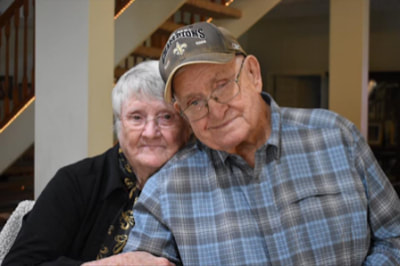
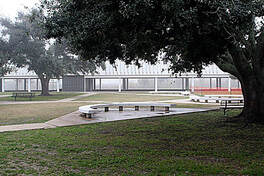

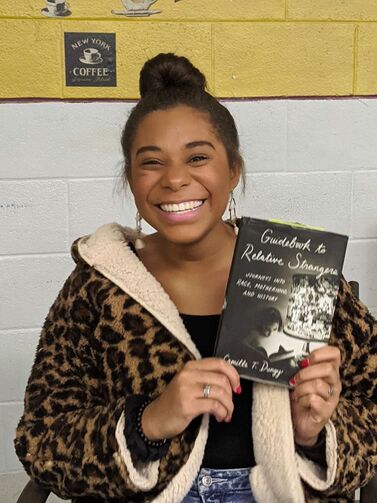
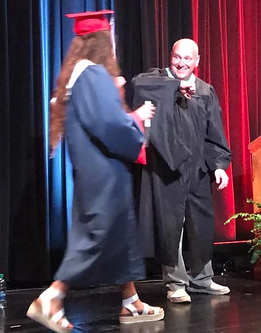
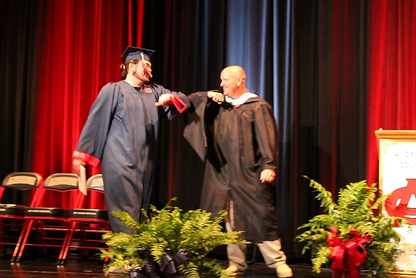
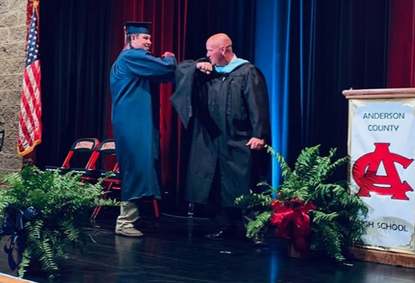

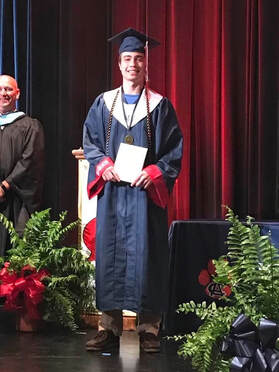
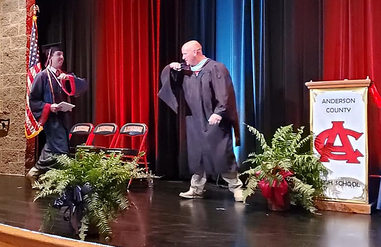
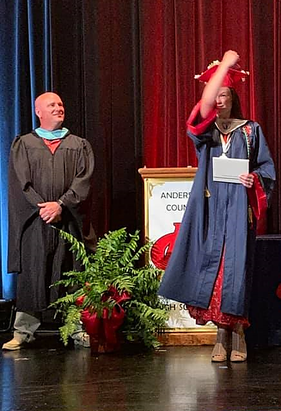
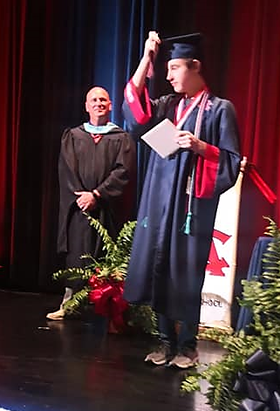

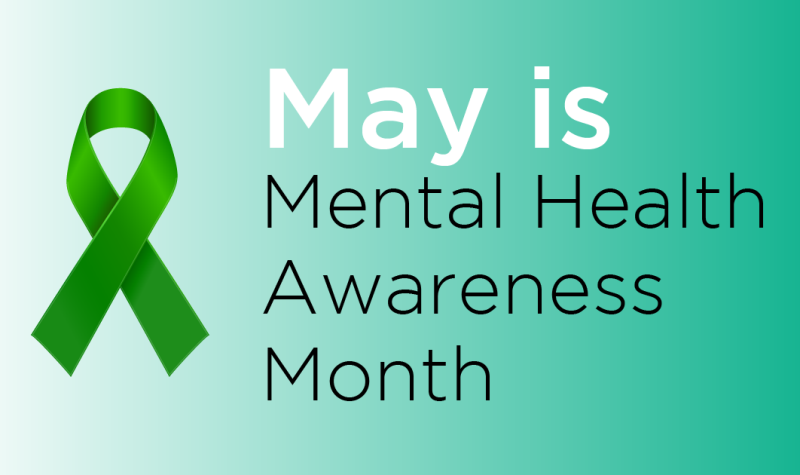
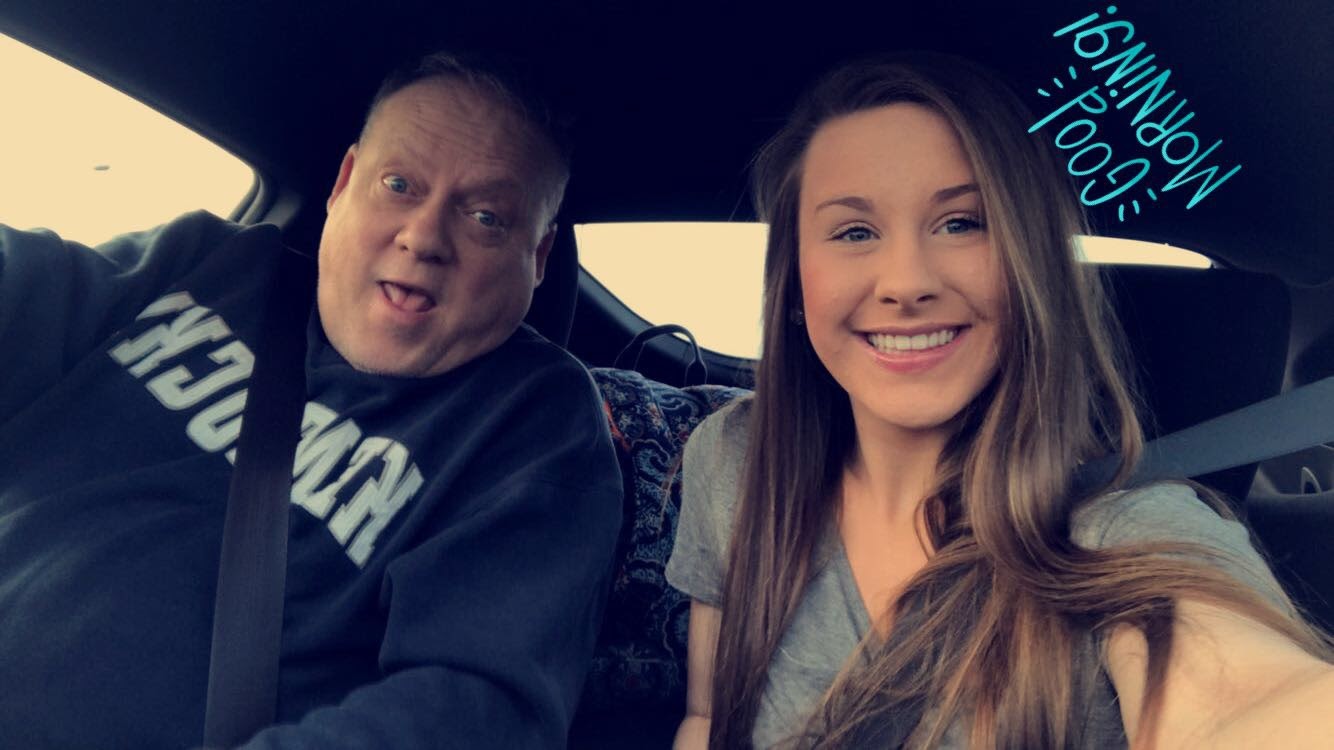
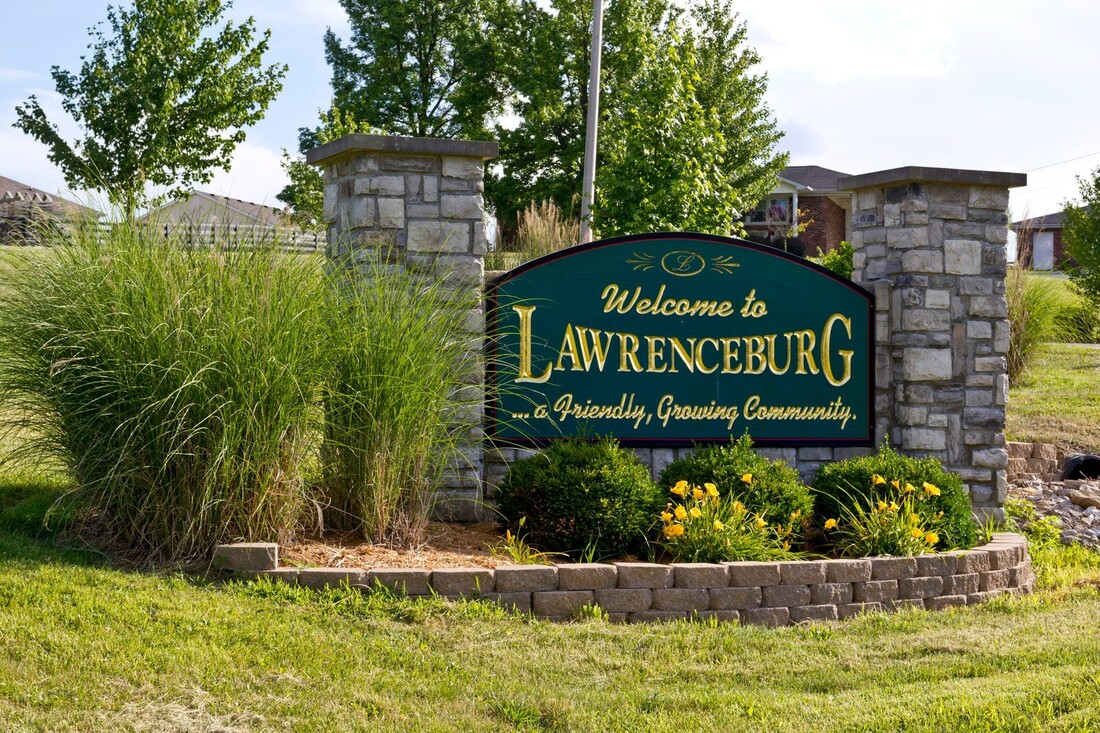
 RSS Feed
RSS Feed
